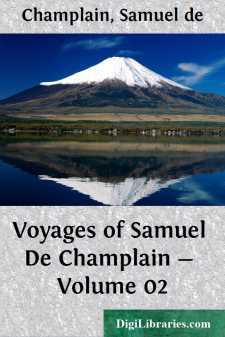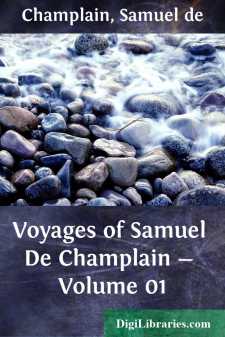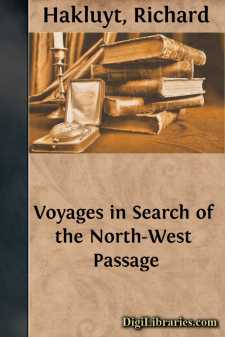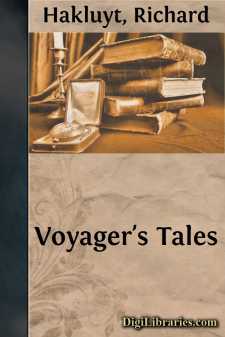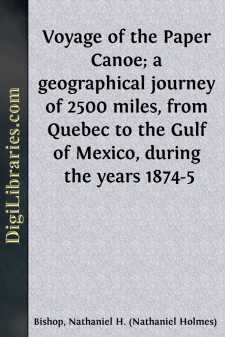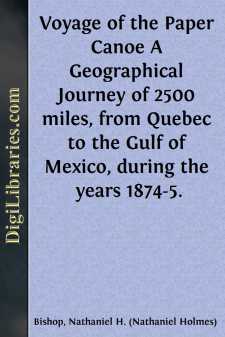Categories
- Antiques & Collectibles 13
- Architecture 36
- Art 48
- Bibles 22
- Biography & Autobiography 813
- Body, Mind & Spirit 142
- Business & Economics 28
- Children's Books 17
- Children's Fiction 14
- Computers 4
- Cooking 94
- Crafts & Hobbies 4
- Drama 346
- Education 46
- Family & Relationships 57
- Fiction 11829
- Games 19
- Gardening 17
- Health & Fitness 34
- History 1377
- House & Home 1
- Humor 147
- Juvenile Fiction 1873
- Juvenile Nonfiction 202
- Language Arts & Disciplines 88
- Law 16
- Literary Collections 686
- Literary Criticism 179
- Mathematics 13
- Medical 41
- Music 40
- Nature 179
- Non-Classifiable 1768
- Performing Arts 7
- Periodicals 1453
- Philosophy 64
- Photography 2
- Poetry 896
- Political Science 203
- Psychology 42
- Reference 154
- Religion 513
- Science 126
- Self-Help 84
- Social Science 81
- Sports & Recreation 34
- Study Aids 3
- Technology & Engineering 59
- Transportation 23
- Travel 463
- True Crime 29
Sort by:
CHAPTER I. THE BENEFITS OF COMMERCE HAVE INDUCED SEVERAL PRINCES TO SEEK AN EASIER ROUTE FOR TRAFFIC WITH THE PEOPLE OF THE EAST.—SEVERAL UNSUCCESSFUL VOYAGES.—DETERMINATION OF THE FRENCH FOR THIS PURPOSE.—UNDERTAKING OF SIEUR DE MONTS: HIS COMMISSION AND ITS REVOCATION.—NEW COMMISSION TO SIEUR DE MONTS TO ENABLE HIM TO CONTINUE HIS UNDERTAKING. The inclinations of men differ according to their...
more...
CHAPTER I. PARENTAGE—BIRTH—HOME AT BROUAGE—ITS SITUATION—A MILITARY STATION—ITS SALT WORKS—HIS EDUCATION—EARLY LOVE OF THE SEA—QUARTER-MASTER IN BRITTANY—CATHOLICS AND HUGUENOTS—CATHERINE DE MEDICIS—THE LEAGUE—DUKE DE MERCOEUR—MARSHAL D'AUMONT—DE SAINT LUC—MARSHAL DE BRISSAC—PEACE OF VERVINS Champlain was descended from an ancestry whose names are not recorded among...
more...
INTRODUCTION. The author of the narratives contained in this volume was Peter Esprit Radisson, who emigrated from France to Canada, as he himself tells us, on the 24th day of May, 1651. He was born at St. Malo, and in 1656, at Three Rivers, in Canada, married Elizabeth, the daughter of Madeleine Hainault. [Footnote: Vide History of the Ojibways, by the Rev. E. D. Neill, ed. 1885.] Radisson says that he...
more...
by:
Richard Hakluyt
Thirty-five years ago I made a voyage to the Arctic Seas in what Chaucer calls A little boteNo bigger than a mannë’s thought; it was a Phantom Ship that made some voyages to different parts of the world which were recorded in early numbers of Charles Dickens’s “Household Words.” As preface to Richard Hakluyt’s records of the first endeavour of our bold Elizabethan mariners to find...
more...
Chapter One. “What shall we do with ourselves, my dear Stilkin?” exclaimed Count Funnibos, yawning and stretching out his legs and arms, which were of the longest. “Do! why, travel,” answered Baron Stilkin, with a smile on his genial countenance. “Travel! what for?” asked the Count, yawning again. “To see the world, to be sure,” answered the Baron. “The world! why, don’t we see it...
more...
by:
Richard Hakluyt
Richard Hakluyt, notwithstanding the Dutch look of his name, was of a good British stock, from Wales or the Welsh borders. At the beginning of the fourteenth century an ancestor of his, Hugo Hakelute, sat in Parliament as member for Leominster. Richard Hakluyt, born about five years before the accession of Queen Elizabeth, was a boy at Westminster School, when visits to a cousin in the Middle Temple,...
more...
by:
Stephen Marlowe
hen the first strong sunlight of May covered the tree-arched avenues of Center City with green, the riots started. The people gathered in angry knots outside the city hall, met in the park and littered its walks with newspapers and magazines as they gobbled up editorial comment at a furious rate, slipped with dark of night through back alleys and planned things with furious futility. Center City's...
more...
CHAPTER IX. FROM NORFOLK TO CAPE HATTERAS. THE ELIZABETH RIVER. — THE CANAL. — NORTH LANDING RIVER. — CURRITUCK SOUND. — ROANOKE ISLAND. — VISIT TO BODY ISLAND LIGHT-HOUSE. — A ROMANCE OF HISTORY. — PAMPLICO SOUND. — THE PAPER CANOE ARRIVES AT CAPE HATTERAS. On Saturday morning, December 5, I left the pier of the Old Dominion Steamship Company, at Norfolk, Virginia, and, rowing across...
more...
INTRODUCTION. The author left Quebec, Dominion of Canada, July 4, 1874, with a single assistant, in a wooden canoe eighteen feet in length, bound for the Gulf of Mexico. It was his intention to follow the natural and artificial connecting watercourses of the continent in the most direct line southward to the gulf coast of Florida, making portages as seldom as possible, to show how few were the...
more...
by:
Joshua Slocum
CHAPTER I The ship—The crew—A hurricane—Cape Verde Islands—Frio—A pampeiro. To get underweigh: It was on the 28th of February 1886, that the bark Aquidneck, laden with case-oil' sailed from New York for Montevideo, the capital o' Uruguay, the strip of land bounding the River Plate on the east, and called by the natives "Banda Oriental." The Aquidneck was a trim and tidy...
more...


